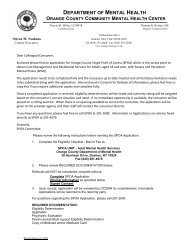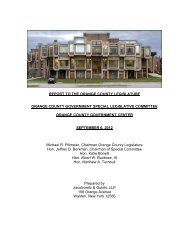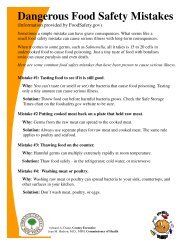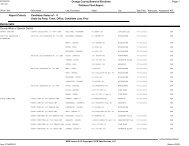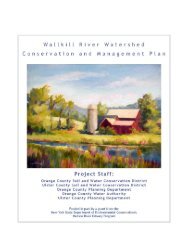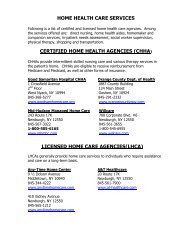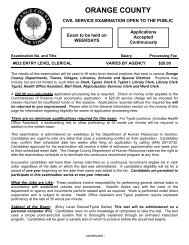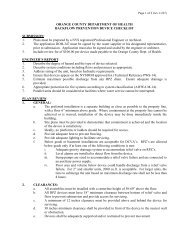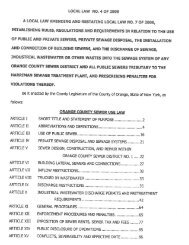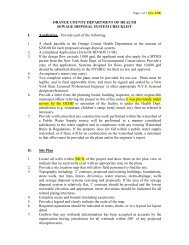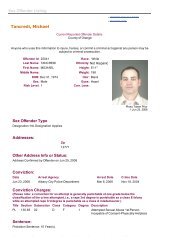A School Waste, Reduction, Reuse, Recycling, Composting & Buy ...
A School Waste, Reduction, Reuse, Recycling, Composting & Buy ...
A School Waste, Reduction, Reuse, Recycling, Composting & Buy ...
Create successful ePaper yourself
Turn your PDF publications into a flip-book with our unique Google optimized e-Paper software.
1. Hold a "SWAP DAY". Have student bring in items from home to swap with other<br />
children. (Of course parental permission will be needed.) You may want to limit the<br />
types of items that can be brought in to items such as books or small toys to<br />
facilitate "even" trading. This can be part of a history lesson in the development of<br />
trade and monetary systems.<br />
2. Collect other reusables such as clothing for local charities.<br />
3. Maintain a free listing service of used musical instruments and sporting equipment<br />
in your school newsletter. Parents will appreciate this effort! It may encourage<br />
some children to try an activity that their family might not be able to otherwise<br />
afford.<br />
4. Incorporate the use of reusables into your art program. Host a sculpture contest in<br />
which the children make their creations from items that would have been recycled<br />
or thrown away. This can be fun even without the added incentive of a contest.<br />
5. Incorporate the use of reusables into your science program by hosting an inventors<br />
fair. Have the children design some machine or other contraption from found items.<br />
You will be amazed at what the children come up with!<br />
6. Establish a bird feeding/observation area with feeders made from containers that<br />
have already been used once for another purpose such as milk jugs, paper milk<br />
cartons, soda bottles, etc. Establish a site where these feeders can stay for an<br />
extended period of time. Allow the children some observation time to record which<br />
birds frequent the different feeders.<br />
RECYCLING<br />
All schools should recycle what is mandated in their community. A basic recycling program<br />
would include paper, metal, glass, and plastic. But there is much more to consider. The<br />
following provides you with information on the basic recyclables and other recyclables to<br />
consider.<br />
PAPER RECYCLING<br />
Paper constitutes the largest single component of the municipal waste stream - over 1/3 by<br />
weight. Markets exist for many types of waste paper. When we recycle paper into new<br />
paper instead of using new raw materials, we reduce: waste disposal, the need to cut down<br />
trees, energy consumption, air and water pollution and greenhouse gas emissions. Ask for<br />
our STOP RIGHT THERE - Paper <strong>Recycling</strong> Handbook.<br />
- 6 -




